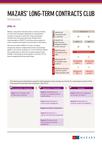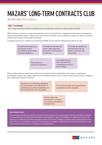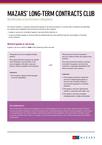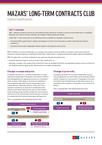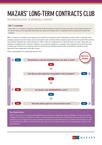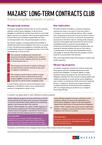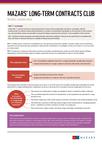
IFRS 15 revenue from contracts with customers
IFRS 15, however, brings considerable implementation challenges, particularly for companies with complex and/or long-term contracts, and demands a more thorough understanding of a businesses’ revenue recognition and measurement policies.
Applying IFRS 15
We can help your organisation understand and implement IFRS 15. In addition to impact assessments and contract analyses, we ran a Long-term Contracts Club for organisations involved with long-term contracts. These workshops were run from April 2016 to February 2017, however, below you can download summaries of some of the most pressing issues considered, being:
• Introduction to the main principles of IFRS 15;
• Identification of performance obligations;
• Revenue recognition on transfer control;
• Incremental costs of obtaining a contract;
• Identification of contracts;
• Contract modifications;
• Variable consideration; and
• Presentation of contract assets and liabilities, licensing and principal versus agent considerations.

